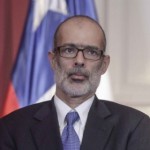
Australia impulsa un Super Impuesto a las Mineras (inglés)
Australia’s centre-left government angered the country’s mining industry on Sunday when it announced plans for a 40 per cent tax on profits generated by resource companies.
The so-called resources super profits tax, which mirrors a levy imposed on offshore petroleum projects, forms part of an overhaul of the country’s taxation system to address the challenges of an ageing population and rising healthcare costs.
Analysts estimated that the new tax would cut earnings at BHP Billiton, the Melbourne-based mining group, 19 per cent. London-based Rio Tinto, which operates highly profitable iron ore mines in Western Australia, could suffer a fall of nearer 30 per cent.
Marius Kloppers, BHP chief executive, said the plan would increase the group’s “total effective tax rate” on profits from its Australian operations from about 43 per cent to some 57 per cent from 2013.
He described the stability and competitiveness of Australia’s tax system as central to the group’s investment in the country. “If implemented, these proposals seriously threaten Australia’s competitiveness, jeopardise future investments and will adversely impact the future wealth and standard of living of all Australians,” he said.
Canberra said that it would also cut the corporate tax rate from 30 to 28 per cent for non-resources companies, increase mandatory pension payments from 9 per cent to 12 per cent and create a A$5.6bn ($5.2bn) infrastructure fund for the mining industry.
The government was responding to the 138 recommendations contained in a review of the tax system by Ken Henry, Treasury secretary.
The review was the most extensive of the country’s tax system in half a century, although critics said its scope was limited after Canberra said changes to the goods and services tax regime were off-limits.Its publication came as Kevin Rudd, Labour prime minister, prepares for a 2010 election. He was under pressure after reneging on promises that brought him to power in 2007 when he defeated John Howard’s Liberal/National coalition.
In a significant climbdown on climate change reforms, Mr Rudd last week delayed the introduction of the country’s ambitious emissions trading scheme until 2013 at the earliest. A day later, he said cigarette excise taxes would rise 25 per cent to raise A$5bn for the health sector over four years.
The new resources tax will begin from July 2012 and raise an estimated A$9bn a year from 2013-14, which is about 0.7 per cent of national income.
Wayne Swan, treasurer, said Australians were entitled to a “fair share” of the country’s non-renewable resources. “It will be a better way to tax resources because it only taxes profits and fully recognises the large investments made in resource projects,” he said.
But Mitch Hooke, chief executive of the Minerals Council of Australia, a lobby group, said the plan meant that the country would have the highest taxed mining industry in the world.
“Australia’s hard-earned reputation as a stable investment environment will be dramatically undermined,” Mr Hooke said. “If the government’s new tax proposal goes ahead, A$108bn worth of future investment in the minerals industry will be under a cloud.”
Tony Abbott, opposition leader, warned that the mining tax would destroy the resources boom.
“Putting a great big tax on the mining industry is like handicapping our most successful athletes. It’s bound to drive investment and jobs overseas,” he said.
Mr Rudd’s decision to delay the emissions trading scheme prompted Malcolm Turnbull, the country’s former opposition leader, to renew his political ambitions.
Mr Turnbull, who was ousted by his own party in 2009 after backing Mr Rudd’s emission trading laws, said he would quit politics at the next election.
However, he reversed that decision on Saturday when he attacked Mr Rudd for an “extraordinary act of political cowardice” over his emission trading laws delay.
Australia plans 40% tax on mining sector
By Peter Smith in Sydney
Published: May 2 2010 20:00 | Last updated: May 2 2010 20:00
Financial Times
Más en derechotributario.cl







Comentarios recientes